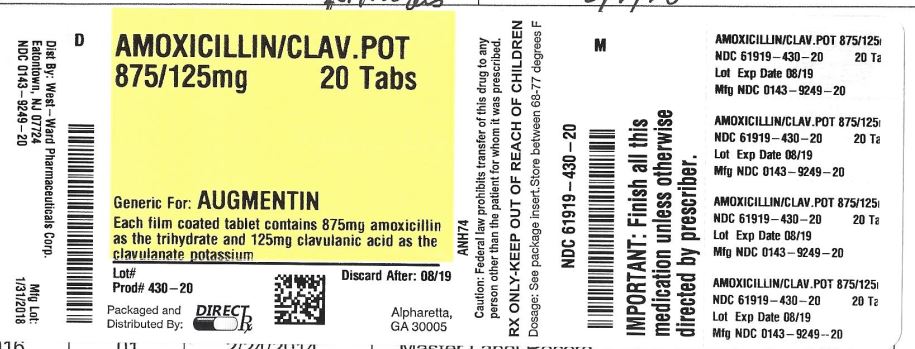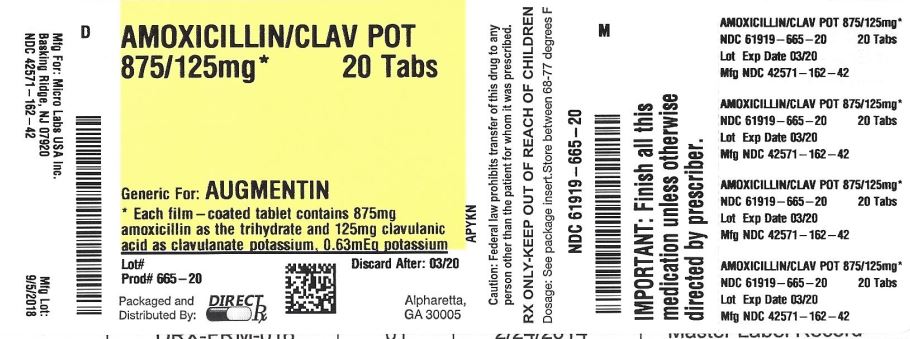
Amoxicillin Clav/pot Tablet while Breastfeeding
What is Amoxicillin Clav/pot Tablet used for?
I am breastfeeding mother and I am using Amoxicillin Clav/pot Tablet. Can it have any bad effect on my kid? Shall I search for better alternative?

Amoxicillin Clav/pot Tablet Breastfeeding Analsys
Amoxicillin anhydrous while Breastfeeding
SafeCAS Number: 26787-78-0
Excretion into breast milk is insignificant and no adverse effects reported in breasted infants. Es considerada medicación compatible con la lactancia por autores y sociedades científicas relevantes (Rowe 2013, Nahum 2006, Mahadevan 2006, Bar-Oz 2003, CDC 2001, Fulton 1992). Es una medicación de uso común en Pediatría y considerado medicamento esencial para uso pediátrico por la OMS (WHO 2013). The possible negativity of cultures in febrile infants whose mothers take antibiotics should be taken into account, as well as the possibility of gastroenteritis due to altered intestinal flora (Benyamini 2005, Ito 1993, Kafetzis 1981). American Academy of Pediatrics: medication usually compatible with breastfeeding (AAP 2001).List of WHO essential medicines: compatible with breastfeeding (WHO / UNICEF 2002).
Amoxicillin Clav/pot Tablet Breastfeeding Analsys - 2
Clavulanic acid while Breastfeeding
CAS Number: 86482-18-0
Limited information indicates that ticarcillin produces low levels in milk that are not expected to cause adverse effects in breastfed infants. Clavulanic acid has not been studied in nursing mothers. Occasionally disruption of the infant's gastrointestinal flora, resulting in diarrhea or thrush have been reported with penicillins, but these effects have not been adequately evaluated. Ticarcillin and clavulanic acid is acceptable is acceptable in nursing mothers.
Amoxicillin anhydrous while Breastfeeding
CAS Number: 26787-78-0
Limited information indicates that amoxicillin produces low levels in milk that are not expected to cause adverse effects in breastfed infants. Occasionally, rash and disruption of the infant's gastrointestinal flora, resulting in diarrhea or thrush, have been reported, but these effects have not been adequately evaluated. Amoxicillin is acceptable in nursing mothers. Amoxicillin powder for suspension reconstituted with breastmilk is absorbed as well as the powder reconstituted with water.[1]
Amoxicillin Clav/pot Tablet Breastfeeding Analsys - 3
Clavulanic acid and Breastfeeding
Safe
What should I do if already breastfed my kid after using Amoxicillin Clav/pot Tablet?
As usage of Amoxicillin Clav/pot Tablet is mostly safe while breastfeeding hence there should not be any concern. In case of any change in behavior or health of your baby you should inform your health care provider about usage of Amoxicillin Clav/pot Tablet else no further action is required.
I am nursing mother and my doctor has suggested me to use Amoxicillin Clav/pot Tablet, is it safe?
Usage of Amoxicillin Clav/pot Tablet is safe for nursing mothers and baby, No worries.
If I am using Amoxicillin Clav/pot Tablet, will my baby need extra monitoring?
No
Who can I talk to if I have questions about usage of Amoxicillin Clav/pot Tablet in breastfeeding?
US
National Womens Health and Breastfeeding Helpline: 800-994-9662 (TDD 888-220-5446) 9 a.m. and 6 p.m. ET, Monday through Friday
UK
National Breastfeeding Helpline: 0300-100-0212 9.30am to 9.30pm, daily
Association of Breastfeeding Mothers: 0300-330-5453
La Leche League: 0345-120-2918
The Breastfeeding Network supporter line in Bengali and Sylheti: 0300-456-2421
National Childbirth Trust (NCT): 0300-330-0700
Australia
National Breastfeeding Helpline: 1800-686-268 24 hours a day, 7 days a week
Canada
Telehealth Ontario for breastfeeding: 1-866-797-0000 24 hours a day, 7 days a week
